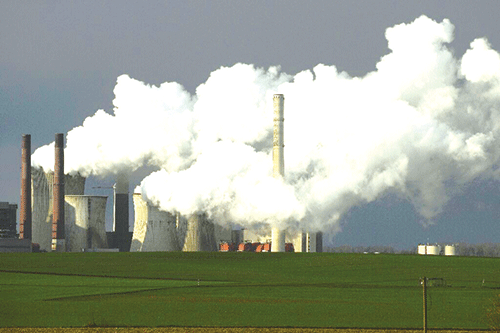Paris – Planet-heating methane released by the fossil fuel industry rose to near- record highs in 2023, despite technology available to curb this pollution at virtually no cost, the International Energy Agency said yesterday.
Slashing emissions of methane, second only to carbon dioxide for its contribution to global warming, is essential to meeting international targets on climate change, the IEA said.
The Paris-based agency said failing to curb methane leaks from oil and gas projects was a “massive, missed opportunity” to prevent losses and reduce emissions of the potent greenhouse gas.
“Emissions of methane from fossil fuel operations remain unacceptably high… There is no reason for emissions to remain as high as they are,” IEA chief energy economist Tim Gould told reporters ahead of the release of the agency’s annual Global Methane Tracker report.
But he expressed hope that this year “could mark a turning point” if countries and fossil fuel firms turn their pollution-cutting promises into concrete policies.
Methane is responsible for around 30% of the global warming experienced today, according to the UN Environment Programme. While some 40% of methane is released from natural sources, mainly wetlands, human activities are responsible for the rest. Agriculture is the main source, as methane is burped out by livestock such as cows and sheep, and emitted during rice cultivation. That is followed by the energy sector, where the methane leaks from energy infrastructure such as gas pipelines, and from deliberate releases during maintenance. This fossil fuel methane pollution has risen three years in a row, the IEA report said, adding that two-thirds of the emissions were from just 10 countries, including China, for its methane linked to coal, and the United States for gas, with Russia shortly behind.
Overall, the IEA said the production and burning of fossil fuels resulted in close to 120 million tonnes of methane emissions in 2023, a small rise compared with 2022, and close to the record high in 2019.
Last year also witnessed a surge in large-scale methane leaks, it said, including a well blowout in Kazakhstan which lasted more than 200 days. Some 40% of the emissions recorded in 2023 “could have been avoided at no net cost” using tried and tested methods to prevent such leakages, said IEA energy expert Christophe McGlade. “It
still represents a massive missed
opportunity,” he added.
Methane is far more powerful than CO2 at trapping heat in the atmosphere but relatively short-lived, making it a key target for countries wanting to slash emissions quickly and slow climate change.
More than 150 countries, including Azerbaijan, host of the next UN climate talks, have promised a 30% reduction by 2030. Oil and gas firms have meanwhile pledged to slash methane emissions by 2050. But these commitments were not backed up by detailed plans, the IEA said, calling for concrete policies to turn the pledges into reality. It said countries and companies have the power to slash methane emissions from fossil fuels in half by 2030, if they deliver on their promises. – Nampa/ AFP



